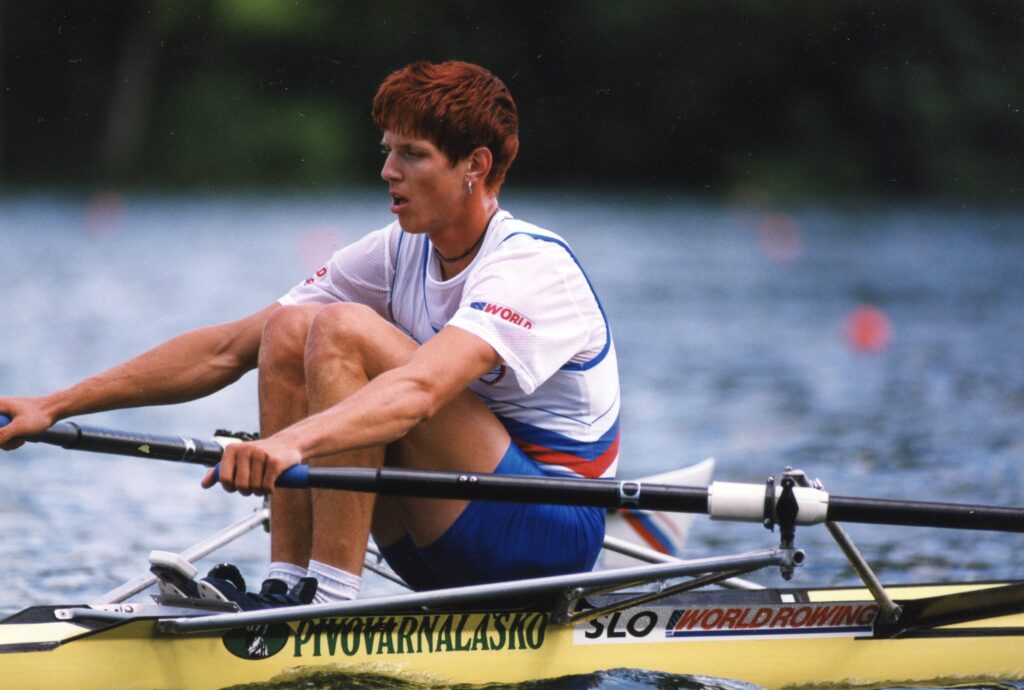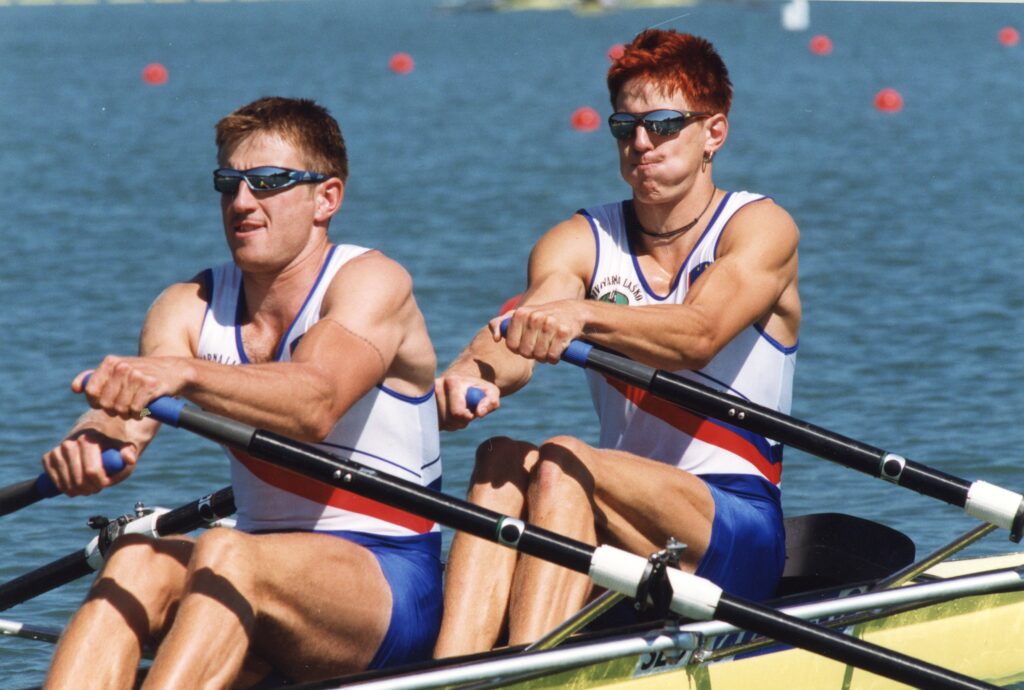
24 Oct 2023
Where are they now: Luka Spik
Luka Spik follows a daily schedule that some would consider more brutal than being a full time rower. He wakes up around 6am to get ready and gets home around nine in the evening. He’s a personal trainer and cross fit coach in London. The days are long.
 From Slovenia, Spik is a five-time Olympian and has three Olympic medals, each a different colour including gold in the double sculls from the Sydney 2000 Olympics. He’s a three-time world champion, two-time junior world champion and one of Slovenia’s most successful rowers (behind rowing partner Iztok Cop).
From Slovenia, Spik is a five-time Olympian and has three Olympic medals, each a different colour including gold in the double sculls from the Sydney 2000 Olympics. He’s a three-time world champion, two-time junior world champion and one of Slovenia’s most successful rowers (behind rowing partner Iztok Cop).
Originally a volleyball player, but also involved in handball, running and basketball, the 13-year-old Spik was watching the 1992 Barcelona Olympics. Slovenia was newly formed and won its only Olympic medals from the Games in rowing. Spik’s parents pointed their son to the sport.
“Sport was always a big thing in our house (both parents were athletes) and Barcelona was a big thing for Slovenia because we were a young country,” says Spik. “Before that I’d never really seen rowing.”
Spik switched to rowing despite protestation from his volleyball coach.
“I was like, but these guys have sponsored cars and I’m going to row long enough to get a car. Once I’d started I didn’t stop.”
Spik rowed 23 years without a break and says there were many highlights along the way. But, he says, it’s hard to beat winning gold at the Sydney Olympics.
“I think you can’t compare it. Gold or silver to bronze. When you win you win. If you’re in second you’re always slightly disappointed.”
The end of elite rowing for Spik came as a progression.
“I don’t know how I decided (to retire) to be honest. I did start to question, why am I doing this? Am I still enjoying it when I’m in the starting blocks and I’m thinking f#ck, I’m shitting my pants and thinking do I want to be doing this.”
As well as the stress of racing, Spik says there’s also pressure when you train.
“It’s not something you can easily brush off. When I was younger it was easier. I had unconditional self-belief because no one had told you otherwise. Then later when you achieve you know how much it takes to train and race hard and beat someone who is doing the same as you.
“I guess these thoughts had been there for a bit.”
Two years after winning bronze at the London Olympics, Spik moved to London and completed a personal training qualification. He found a position in a gym and decided to stay.
 Spik continued rowing but found that he was drifting away.
Spik continued rowing but found that he was drifting away.
“It takes so much effort to row (in London). You have to leave home at 5:30am to be at the rowing club by 6:30 and on the water by 7am. It was like you know what, I’m not that passionate about it, I’d prefer to sleep. I was kind of enjoying being away from it. I didn’t miss it.”
Spik is now at a CrossFit gym and has completed level one coaching.
“I still train five to six times a week, but we do all kinds of things; swimming, squash … It’s much more diverse than rowing.”
Not everyone Spik trains knows his rowing success and Olympic medals.
“I don’t hold it in me. If it comes out it does, if it doesn’t it doesn’t. It’s not hidden but I wouldn’t say it defines who I am.”

